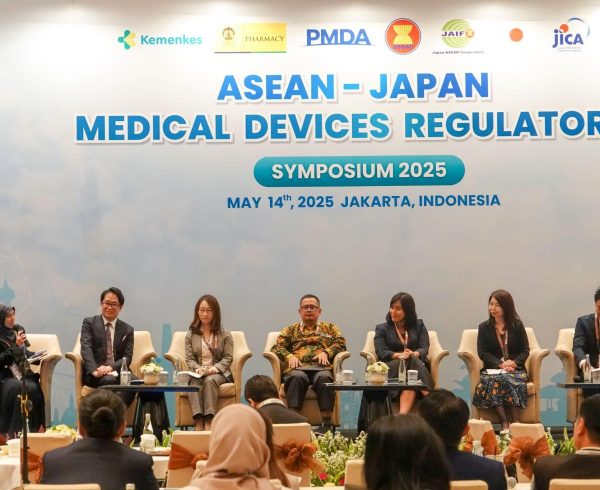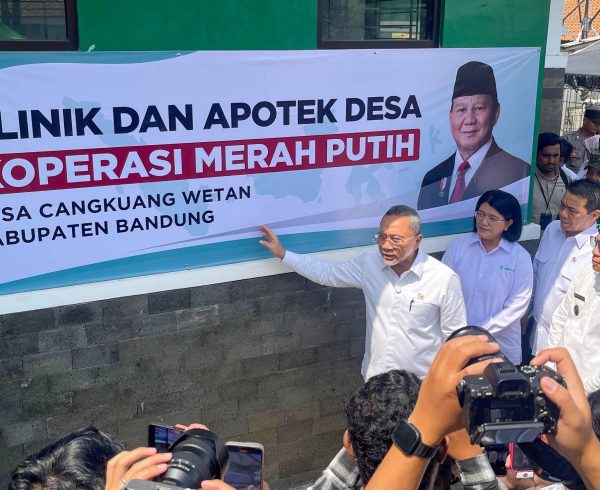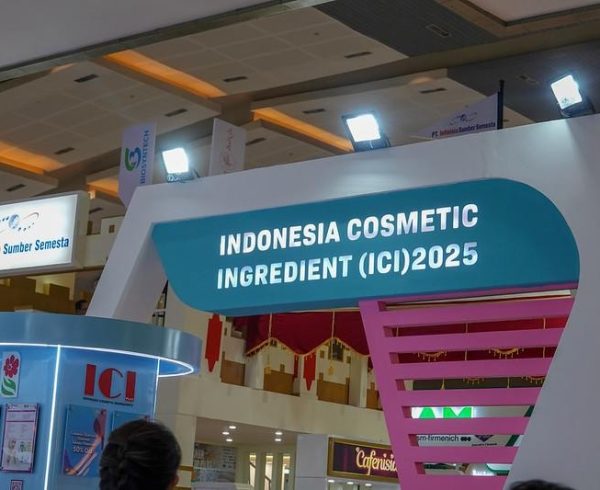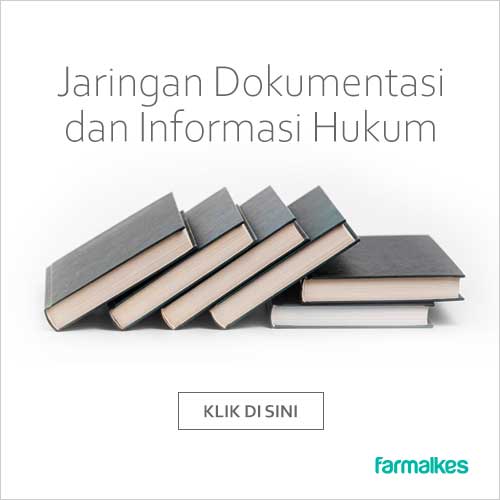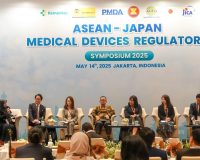Dalam upaya pemetaan nilai Tingkat Kandungan Dalam Negeri (TKDN) pada produk alat kesehatan dalam negeri, Direktorat Ketahanan Kefarmasian dan Alat Kesehatan Ditjen Kefarmasian dan Alat Kesehatan Kemenkes RI, menggelar kegiatan Focus Group Discussion (FGD) dengan Lintas sektor, secara hybrid di Jakarta pada Senin (17/7).
Kegiatan ini bertujuan untuk mengidentifikasi dan memetakan capaian dan pelaksanaan sertifikasi TKDN produk alat kesehatan (alkes) yang beredar di Indonesia dalam rangka mendukung pengembangan industri alat kesehatan dalam negeri.
Ketua Tim Kerja Peningkatan dan Fasilitasi TKDN Alat Kesehatan dan Penggunaan Alkes Dalam Negeri, Dit. Ketahanan Kefarmasian dan Alat Kesehatan , Lupi Trilaksono menyampaikan pertemuan ini merupakan rangkaian pertemuan terkait implementasi regulasi penggunaan alkes dalam negeri, terutama mengenai implementasi kebijakan Tingkat Komponen Dalam Negeri (TKDN).

“Dari kegiatan ini diharapkan bisa mengidentifikasi dan mengevaluasi capaian sertifikasi TKDN alkes dan juga upaya-upaya untuk perbaikan ke depan sebagai bahan menyusun intervensi apa yang dapat dilakukan pemerintah sebagai regulator dan swasta selaku produsen Alkes” tambahnya
Hadir dalam pertemuan ini perwakilan dari Kementerian Perindustrian, PT Surveyor Indonesia, PT Sucofindo, Asosiasi Produsen Alat Kesehatan Indonesia (ASPAKI), Organisasi Perusahaan Alat-Alat Kesehatan Dan Laboratorium (GAKESLAB Indonesia), Asosiasi Instalasi Gas Medik Indonesia (AIGMI) dan para pelaku Industri Alkes dalam negeri.
Direktur Ketahanan Kefarmasian dan Alat Kesehatan Roy Himawan dalam sambutannya, menyampaikan dalam rangka mendukung Transformasi Sistem Ketahanan Kesehatan, Kemenkes telah membuat kebijakan untuk mendorong ketahanan kefarmasian dan alat kesehatan, khususnya ketahanan alat kesehatan, berupa menjamin pasar yang dilakukan antara lain substitusi produk impor.

“Jika produk alkes dalam negeri sejenis dengan produk alkes impor dengan spesifikasi yang sama sudah bisa di produksi di dalam negeri dan memenuhi kebutuhan nasional, maka akan dilakukan freeze produk impor alat kesehatan” ujarnya.
Hal ini sesuai dengan Keputusan Menteri Kesehatan Nomor HK.01.07/MENKES/1258/2022 tentang Substitusi Alat Kesehatan Impor dengan Alat Kesehatan Dalam Negeri Pada Katalog Elektronik Sektoral Kesehatan.
Lebih lanjut Roy mengatakan, data transaksi di e-katalog menunjukkan adanya peningkatan belanja alkes dalam negeri dari 2,3 T (12 persen) pada tahun 2019-2021 menjadi 10 T (34 persen), pada tahun 2022 hingga per tanggal 10 Juli 2023 belanja Alkes produk dalam negeri sebesar 8,8 T (48,2 persen).
“Perkembangan ini cukup menggembirakan, namun prioritisasi pembelian alkes dalam negeri tetap harus terus ditingkatkan” tegasnya.
Selain itu Roy juga mengatakan bahwa Kemenkes telah melakukan monitoring secara berkala terhadap jumlah produk alat kesehatan yang tersertifikasi TKDN di atas 50 persen. Berdasarkan data e-Katalog, hingga 30 Juni 2023 sudah terdapat 6.782 (24,9 persen) produk alat kesehatan tayang e-katalog yang telah memiliki sertifikat TKDN di atas 50 persen.
“Kemenkes dan Kemenperin bersinergis untuk terus meningkatkan jumlah dan jenis alat kesehatan dalam negeri termasuk peningkatan alkes dalam negeri yang bersertifikasi TKDN. Dengan demikian, pengembangan industri Alkes harus terus didorong guna memenuhi kebutuhan alkes dalam negeri” imbuhnya.

Dari pertemuan ini hendaknya dapat memberikan data dan gambaran capaian sertifikasi TKDN alat kesehatan serta kendala yang dialami dalam mendapatkan sertifikasi TKDN produk Alat Kesehatan sebagai bahan menentukan intervensi yang tepat dari pemerintah sebagai regulator dan pihak swasta sebagai pelaku usaha.
“Harapan saya pertemuan ini bermanfaat sehingga mendorong, dan memfasilitasi industri Alkes dalam negeri untuk meningkatkan nilai TKDN produk dan mutu Alkes, serta pada akhirnya dapat meningkatkan penggunaan dan pembelian alkes dalam negeri pada pelaksanaan pengadaan barang/jasa pemerintah” tambahnya.
Pada kesempatan yang sama Arthur Sopar dari Pusat Percepatan Peningkatan Penggunaan Produk Dalam Negeri (P3DN), Kemenperin menyampaikan berdasarkan Permenperin Nomor 46 Tahun 2022 Pemerintah menggratiskan dan mempermudah proses sertifikasi TKDN bagi industri kecil (TKDN IK), agar bisa ikut serta dalam PBJP dan menjadi prioritas untuk dibeli, serta mendapatkan preferensi harga.
“Ada tiga keuntungan yang didapat bagi TKDN IK yaitu pertama mudah karena sertifikat TKDN IK bersifat self-assessment dan dapat dicetak mandiri, kedua cepat karena sertifikat TKDN IK disahkan maksimal dalam waktu lima hari kerja dan yang ketiga gratis atau proses sertifikasi tidak dipungut biaya sama sekali” tambahnya.
Sementara itu Achmad Taufik dari Biro Pengadaan barang dan Jasa Kemenkes mengatakan prioritas penggunaan PDN pada proses E-Purchasing sesuai Keputusan Kepala LKPP Nomor 122 Tahun 2022 adalah apabila terdapat produk dalam negeri (PDN) dengan nilai TKDN dan Bobot Manfaat Perusahaan (BMP) minimal 40 persen, maka yang wajib dibeli adalah PDN dengan dengan nilai TKDN lebih dari sama dengan 25 persen, tetapi jika tidak dapat dipenuhi maka membeli PDN dengan nilai TKDN kurang dari 20 persen, jika masih tidak terpenuhi maka membeli produk PDN tanpa TKDN, jika masih tidak terpenuhi juga maka barulah membeli produk impor.
Pada kesempatan ini Christina Sandjaya Sekretaris Jenderal ASPAKI menyampaikan tanggapannya “Kami mengapresiasi support pemerintah yang diberikan untuk UMKM, proses sertifikasi TKDN untuk industri kecil betul – betul sangat dipermudah , sertifikasi standar tidak perlu ada kunjungan lapangan atau verifikasi, cepat, mudah dan gratis, mohon pengawasannya juga ditingkatkan, jangan sampai ada UMKM membuat alat kesehatan dengan risiko tinggi dan mudah membuatnya, TKDNnya tinggi sehingga banyak dibeli” ujarnya.



 Kegiatan Focus Group Discussion (FGD) dengan Lintas sektor, secara hybrid di Jakarta pada Senin (17/7)
Kegiatan Focus Group Discussion (FGD) dengan Lintas sektor, secara hybrid di Jakarta pada Senin (17/7)
